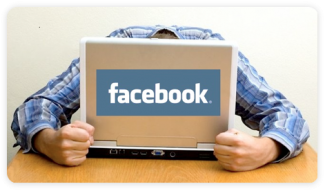For all the drama and groan-inducing crap we see on social media every day, there is a very redeeming quality in the social networking site.
Mood music:
https://youtu.be/l8T-KZMED00
It’s a good early-warning system for identifying friends in need. I’m not revealing anything you don’t know, but a New York Times article my wife sent me really drives the point home.
Written by Times reporter Jan Hoffman, the article points out, among other things:
For adolescents, Facebook and other social media have created an irresistible forum for online sharing and oversharing, so much so that endless mood-of-the-moment updates have inspired a snickering retort on T-shirts and posters: “Face your problems, don’t Facebook them.”
But specialists in adolescent medicine and mental health experts say that dark postings should not be hastily dismissed because they can serve as signs of depression and an early warning system for timely intervention.
As obvious as this seems, it can be hard to swallow all the same, since we all love to get annoyed with people who over emote online. I’ve certainly written my share of posts making fun of the whole thing (see “I am the Facebook Superstar. Hear me whine“). I don’t regret it, because I think there is some fun to be had in how people carry on.
But reading that article has me wondering about a couple friends from childhood who took their lives: Sean Marley, who I’ve written of a lot, and Zane Mead. Had Facebook existed then, what might have been? Would these old friends have posted hints into what they were feeling? Would it have made a difference in they did?
Maybe. Maybe not.
I have seen cases where someone posted about being depressed and angry, and other friends filled the space below the post with comments of support and love. I think that would have helped Zane. Sean was a much more complicated person, so it’s harder to imagine.
All of this wondering is a pointless exercise on my part. Facebook wasn’t around in 1988 and 1996, so we’ll never know. All we can and should be doing is honoring their memories.
But for today, Facebook gives us an opportunity to help someone else who is in a mentally dangerous place. I’ve heard a lot from authority figures in my community about how Facebook is bad for kids, kind of like candy and drugs. But they miss the point. Like it or not, this is where our kids are going to be hanging out from now on. This is for them what hanging out in the park or under the bridge was for our generation.
The difference is that if we’re connected to them, we can see what they are saying and doing. That’s not always a good thing if you value your privacy. But if someone is in deep pain, we might be able to notice sooner and maybe make the difference.
That article is a good reminder to keep a close eye on what our friends and family say, and to not take every annoying comment lightly.

